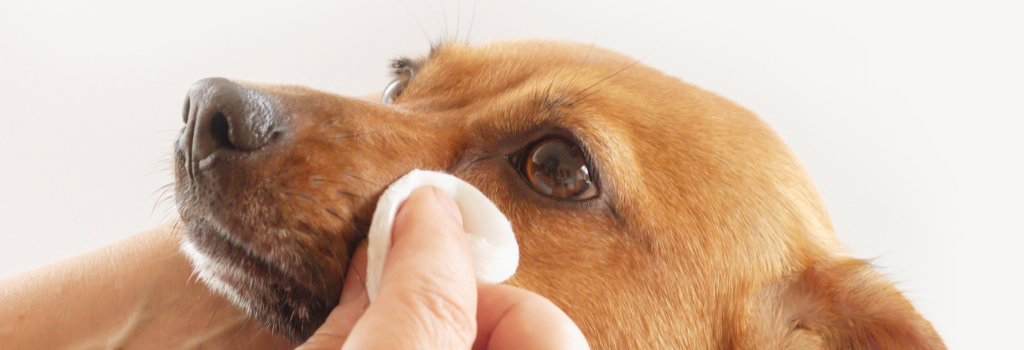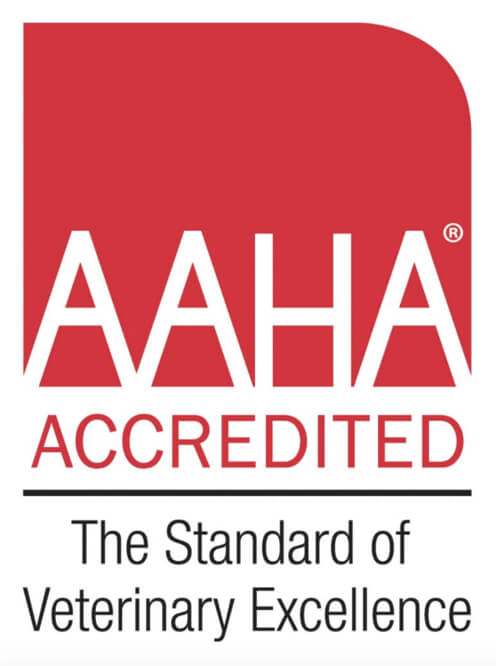Taking immediate action when your dog has any signs or symptoms of an eye issue is critical, as self-diagnosing or delaying treatment could result in the worst-case scenario – loss of an eye or their vision. From squinting to abnormal discharge, many symptoms can’t be ignored when it comes to your dog’s eyes. If your dog seems to be experiencing an eye issue, your first instinct might have been to search online for answers and remedies. At Valley Animal Hospital, we work hard to provide factual information you can trust, so your dog remains happy and healthy. To avoid online misinformation that could prove detrimental to your dog’s vision, we’ve taken FAQs about dog eye care and answered them as thoroughly as possible.
If you’re looking for a highly trained veterinarian in Grants Pass, OR, we’d love to see your dog for any eye issues, so please call us at (541) 955-9655.
What is the most important thing when it comes to taking care of my dog’s eyes?
The single most important thing about dogs' eyes is not to delay visiting your veterinarian if you suspect a problem. The mentality of "Let's watch it and see if it clears up" can have a significant impact on your dog’s vision as eye conditions develop rapidly, and therefore we need to address them quickly.
Should I bring my dog in to see a veterinarian if I suspect a vision problem?
You should bring your dog in to see your veterinarian at the first sign of an eye or vision problem, even if it ends up being something relatively insignificant. There have been countless situations where dog owners thought it was a minor issue, but it turned out to be something quite serious. A dog can go from having no eye issues to needing an eye surgically removed in a short amount of time if the problem isn’t addressed.
What are some signs and symptoms that my dog has, or may have, an eye issue?
There are many signs of eye issues in dogs, including both physical symptoms and behaviors such as your dog keeping their eyes closed for periods when they’re not sleeping.
Signs of an eye issue in dogs include:
- Squinting
- Tearing
- Redness
- Swelling (eyeball or eyelid)
- Cloudiness
- Discharge
- Matted debris
- Pupils too big or too small
- Pawing at the eye
- Bumping into things
The American Kennel Club provides insight on what cloudy eyes in your dog could mean, from cataracts to glaucoma.

Is it important to avoid self-diagnosing dog eye issues?
Eye issues can progress rapidly and often look like one thing, but it's entirely something else. There can be very subtle differences between minor and significant eye issues, so it’s always best to avoid self-diagnosing and see your veterinarian as soon as possible. A delay in proper treatment could be detrimental to your dog’s vision. There's a critical time aspect regarding eye diseases, making any eye issue an emergency.
Senior dogs can have eye issues that arise gradually with age. It's important to monitor your older pet and mark any changes in their behavior. As sight decreases, our pets can become timid, confused, and anxious. Bi-yearly wellness exams are important for our gray-faced friends. This way, their veterinarian can monitor closely their aging process and develop a care plan for your dog as their sight changes.
How will a veterinarian diagnose a problem with vision or any other eye issues in my dog?
Your veterinarian will start with an exam, looking closely at your dog’s eye. Different lights and equipment allow them to get a very close look at the eye itself. They’ll also feel it for softness, hardness, and to gauge pain. Your veterinarian can also numb the eye, move the eyelids, and look underneath. They can do stains, eye pressures, and tear tests to come to a correct diagnosis. In some cases, if your veterinarian doesn’t have the proper equipment, they’ll refer you to a dog ophthalmologist. The ASPCA lists the top dog eye problems, including what causes them and the treatment your veterinarian is likely to recommend.
Why is early detection and diagnosis of eye issues in a dog so important?
Early detection and diagnosis are critically important because things can change rapidly with the eyes. It's far better to overreact and have it be a simple problem that’s easily taken care of rather than be in a situation where an eyeball ruptures or an ulcer gets too deep — things that are irreparable and require removal of the eye or permanent loss of vision. Those scenarios can happen if you don't address an eye problem quickly, especially one more serious than you assumed. The best thing you can do for your dog is to bring them in for an exam to avoid any further destruction of the eye from them pawing at it. We can successfully correct most eye issues if you ensure that your dog gets to the veterinarian quickly.
If you have further questions about dog eye issues, reach out to your veterinarian. If you live in or near Grants Pass, OR, we’d love to see your dog if you suspect an eye issue, so please don’t hesitate to call us at (541) 955-9655 or email us at [email protected].

